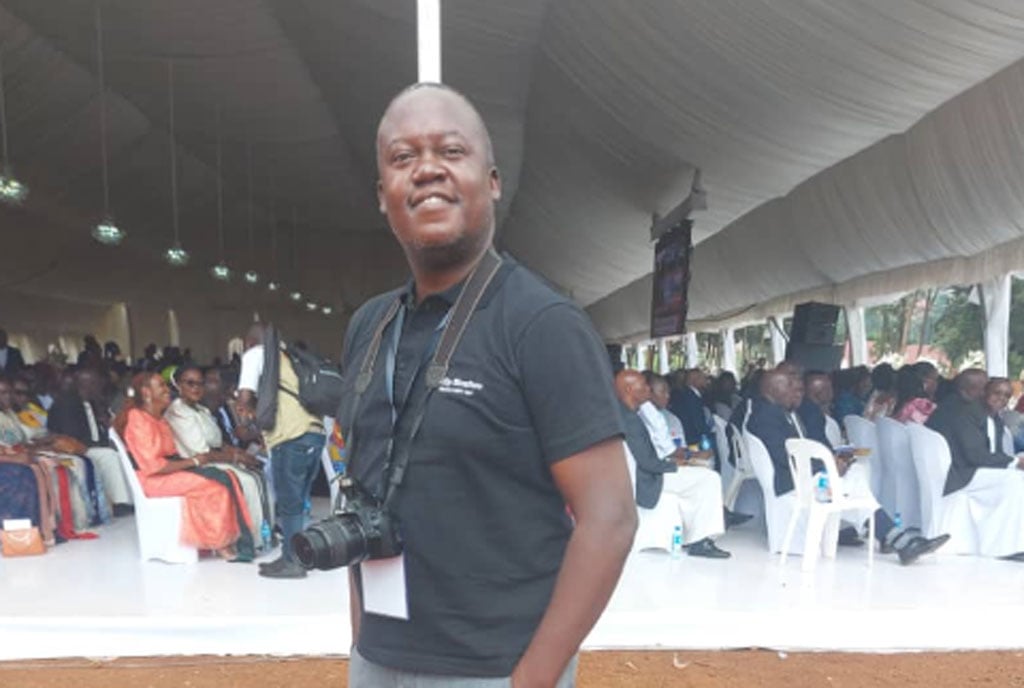Prime
Govt school for deaf, blind women rots away

A classroom block at Mpumudde Rehabilitation and Vocational Centre in Jinja City. The government’s only rehabilitation and vocational centre in eastern Uganda is slowly rotting away. PHOTO/PHILIP WAFULA
What you need to know:
- There were also reports of poor facilitation, with some learners alleging that their training had been prolonged for more than a year.
- Officials say the school is understaffed.
The government’s only rehabilitation and vocational centre in eastern Uganda is slowly rotting away, dealing a major blow to the marginalised girls for which it was started 60 years ago.
Mpumudde Rehabilitation and Vocational Centre in Wairaka Village, Jinja City, was set up in 1962 to impart skills in women between 16 and 35 years, who are blind, deaf, albinos, and those of exceptionally small stature.
The women are taught a wide-range of disciplines, including tailoring, knitting, weaving, hairdressing, and cookery.
However, the appalling state of the centre, fuelled by a myriad of challenges, has plagued the facility, leading to a reduction in enrollment from 80, at full capacity, to 35.
Many of the girls, especially those with multiple disabilities like the “deaf-blind” or those who are both deaf and blind, are from Busia, Mbale, and Kamuli Districts, Mr Innocent Mulindwa, the acting rehabilitation officer, told Daily Monitor in an interview last Wednesday.
About seven years ago, the centre was relocated from Mpumudde to its current location which was previously Wairaka Rural Training Centre, and offered adult education.
This was because at Mpumudde, the centre had dilapidated buildings, some with cracks, which put lives at risk.
There were also reports of poor facilitation, with some learners alleging that their training had been prolonged for more than a year.
Mr Mulindwa now fears that some of the reasons for which the centre was relocated have started manifesting at the current location and appealed to government to retool the school.
“Here [Wairaka], the surface of the compound doesn’t facilitate movement of the deaf and blind, and there are no pathways,” Mr Mulindwa said.
He added that the pit-latrines have never been emptied, while thieves continue to put the centre on the edge.
“The structures are roofed with asbestos which is a health hazard, furniture is missing, and there is limited supply of food and training materials like sewing machines,” he added.
According to Mr Mulindwa, of the eight staff, only one is qualified and works as an instructor of tailoring, while the rest are workshop attendants.
Earlier, the chairperson of the gender committee of Parliament, Ms Flavia Kabahenda Rwabuhoro, who led a delegation on a visit of the centre, said: “It is almost crumbling.”
The team was visiting the eastern and northern parts of the county seeking to understand triggers for Gender-Based Violence (GBV) and persistent Female Genital Mutilation.
“Only four [staff members] are paid by government. The overseer, which is the Ministry of Gender, Labour and Social Development, is very far and seems detached from the subject matter,” Ms Kabahenda said.
The MPs also heard that the centre has no viable money-making venture or activity to generate additional funds, and that the few government employees have not been confirmed, while their annual salary reimbursements have allegedly not been done in three years.
There are five such centres in the country including those in Lweza and Kireka [central], Ruti [Mbarara], and Ocoko [Arua].
Efforts to get a comment from the Ministry of Gender, Labour and Social Development principal public relations officer, Mr Frank Mugabi, were futile as our calls went unanswered, while messages were not replied.
Training
Mr Innocent Mulindwa, the acting rehabilitation officer, said plans were underway to accommodate a group of the deaf-blind from Tanzania at the centre in 2019, but it was instead deemed necessary to train their instructors, which strategy was hampered by the Covid-19 pandemic.





